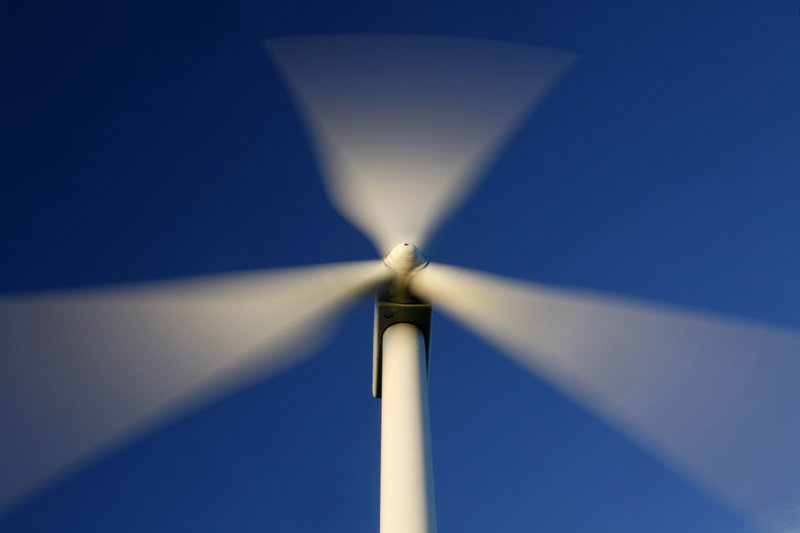The Public Utilities Commission said yes to hundreds of millions of dollars worth of new investment in a clean industry. You would think that would be a cause for celebration, but since the industry is wind power, the response was met with sharp criticism.
We should not be surprised. Nothing is as simple as it looks when it comes to wind.
It is an issue that pits industry against industry, environmentalists against environmentalists, and creates new and surprising enemies and allies.
The critics have two major complaints about wind power. The first is that it is an eyesore on pristine rural ridge tops. The second is that it produces power that is more expensive than what currently can be produced by other sources.
But both arguments can be overcome. We are facing an environmental crisis resulting from burning fossil fuels. The long-term impact of climate change caused by human activity is already causing more severe environmental disasters than the sight of some towers and rotating blades in what have been undeveloped areas.
From an environmental perspective, the benefits of expanding wind generation are worth the visual impact.
When it comes to price, there are a lot of factors that need to be compared. Natural gas prices are currently low, and Maine benefits, but there is no guarantee that they will stay that way. It makes sense to develop alternative energy sources that could ease the burden on energy users if there is a gas price increase.
The economic benefit of wind power is its predictability. Once the capital costs are paid, there are never any fuel costs. Over time, this could be a big relief for the same power users who are complaining about the PUC decision today.
And there is a more direct, short-term economic benefit that would be felt throughout the state. No industry has plans for the kind of investment that the wind industry has for Maine, particularly in places far from the economic hub of the state. The money paid for construction projects will show up in workers’ pockets, local stores and restaurants and municipal tax collections. It will be used to support schools and local services.
And it won’t pollute the air or water like most other energy generators.
There are potential problems with the deal the PUC approved, but they can be addressed with conditions that will make several now affiliated businesses compete in the marketplace. Crafting those conditions is a much better solution than just rejecting this massive development.
Wind is not the answer to Maine’s energy problems, but it is part of the answer and should be one of the building blocks of the state’s energy portfolio. The PUC made the right call last week. Maine should continue to seek a balanced energy policy that includes conservation and a variety of sources — including wind.
Send questions/comments to the editors.



Success. Please wait for the page to reload. If the page does not reload within 5 seconds, please refresh the page.
Enter your email and password to access comments.
Hi, to comment on stories you must . This profile is in addition to your subscription and website login.
Already have a commenting profile? .
Invalid username/password.
Please check your email to confirm and complete your registration.
Only subscribers are eligible to post comments. Please subscribe or login first for digital access. Here’s why.
Use the form below to reset your password. When you've submitted your account email, we will send an email with a reset code.